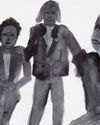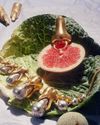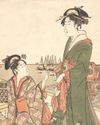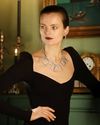
The search for immortality has always been a subtext of architecture. From the pyramids, thought to have been designed as massive stairways so the soul of the deceased pharaoh could ascend to the heavens, to the aspirationally named New York Coliseum, the 1956 exhibition space, demolished in 2000, that was Robert Moses’s bid to join the company of the Roman emperors, many structures are created with an eye towards a life everlasting.
But Madeline Gins and her husband, Shusaku Arakawa (who went only by his last name), 1960s New York conceptual artists and amateur architects who are regarded as a bridge between the Dada and Fluxus movements, had a more literal, if whimsical, take on cheating death: The pair purported to believe that their structures could actually allow their inhabitants eternal life.
Their philosophy, which claimed a vast array of fans, from the Italian novelist Italo Calvino (who wrote text for their gallery shows) to the poet Robert Creeley, was called Reversible Destiny. Living too comfortably was catastrophic to the human condition, they argued. Instead, the Long Island-born Gins, who was also a poet, and Arakawa, who came to New York from Japan in 1961 and attended art school, thought humans should live in a perpetual state of instability. They posited that buildings could be designed to increase mental and physical stimulation, which would, in turn, prolong life indefinitely. An aversion to right angles, an absence of symmetry and a constant shifting of elevations would stimulate the immune system, sharpen the mind and lead to immortality.
هذه القصة مأخوذة من طبعة September 2019 من T Singapore: The New York Times Style Magazine.
ابدأ النسخة التجريبية المجانية من Magzter GOLD لمدة 7 أيام للوصول إلى آلاف القصص المتميزة المنسقة وأكثر من 9,000 مجلة وصحيفة.
بالفعل مشترك ? تسجيل الدخول
هذه القصة مأخوذة من طبعة September 2019 من T Singapore: The New York Times Style Magazine.
ابدأ النسخة التجريبية المجانية من Magzter GOLD لمدة 7 أيام للوصول إلى آلاف القصص المتميزة المنسقة وأكثر من 9,000 مجلة وصحيفة.
بالفعل مشترك? تسجيل الدخول

Look At Us
As public memorials face a public reckoning, there’s still too little thought paid to how women are represented — as bodies and as selves.

Two New Jewellery Collections Find Their Inspiration In The Human Anatomy
Two new jewellery collections find their inspiration in the human anatomy.

She For She
We speak to three women in Singapore who are trying to improve the lives of women — and all other gender identities — through their work.
Over The Rainbow
How the bright colours and lively prints created by illustrator Donald Robertson brought the latest Weekend Max Mara Flutterflies capsule collection to life.

What Is Love?
The artist Hank Willis Thomas discusses his partnership with the Japanese fashion label Sacai and the idea of fashion in the context of the art world.

The Luxury Hotel For New Mums
Singapore’s first luxury confinement facility, Kai Suites, aims to provide much more than plush beds and 24-hour infant care: It wants to help mothers with their mental and emotional wellbeing as well.

Who Gets To Eat?
As recent food movements have focused on buying local or organic, a deeper and different conversation is happening among America’s food activists: one that demands not just better meals for everyone but a dismantling of the structures that have failed to nourish us all along.

Reimagining The Future Of Fashion
What do women want from their clothes and accessories, and does luxury still have a place in this post-pandemic era? The iconic designer Alber Elbaz thinks he has the answers with his new label, AZ Factory.

A Holiday At Home
Once seen as the less exciting alternative to an exotic destination holiday, the staycation takes on new importance.
All Dressed Up, Nowhere To Go
Chinese supermodel He Sui talks about the unseen pressures of being an international star, being a trailblazer for East Asian models in the fashion world, and why, at the end of the day, she is content with being known as just a regular girl from Wenzhou.